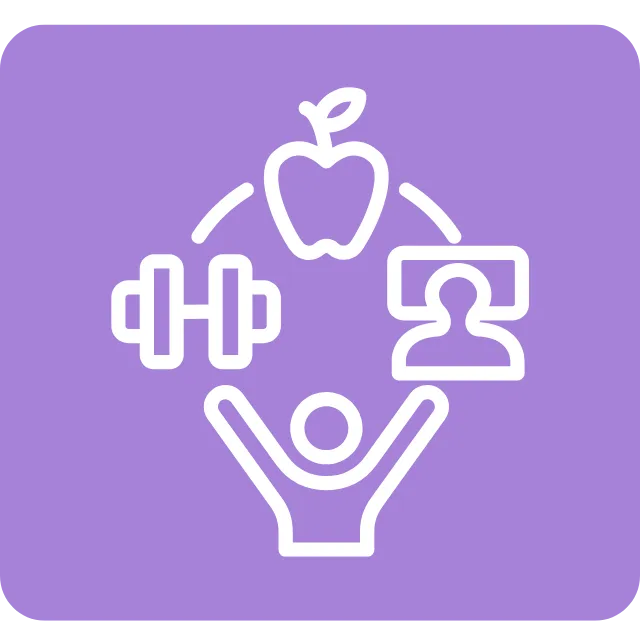
The Role of Nutrition in Academic Performance

The Role of Nutrition in Academic Performance
Episode - 26
The Connection Between Nutrition and Learning
Today, we’re tackling a critical topic that impacts millions of children worldwide: the role of nutrition in academic performance. While the connection between a healthy body and a healthy mind is well-documented, access to nutritious food remains a challenge for many children, particularly those from underprivileged families.
The Born To Be Wealthy Foundation is committed to bridging this gap through programs like the Food Program and Health & Nutrition Education Program, ensuring that children have access to the nourishment they need to thrive in school and life.
In this episode, we’ll explore the science behind nutrition and learning, discuss the challenges of addressing food insecurity, and share stories of how the Foundation’s initiatives have transformed lives.
Episode - 26
The Connection Between Nutrition and Learning
Today, we’re tackling a critical topic that impacts millions of children worldwide: the role of nutrition in academic performance. While the connection between a healthy body and a healthy mind is well-documented, access to nutritious food remains a challenge for many children, particularly those from underprivileged families.
The Born To Be Wealthy Foundation is committed to bridging this gap through programs like the Food Program and Health & Nutrition Education Program, ensuring that children have access to the nourishment they need to thrive in school and life.
In this episode, we’ll explore the science behind nutrition and learning, discuss the challenges of addressing food insecurity, and share stories of how the Foundation’s initiatives have transformed lives.

Listen to real conversations, and real topics that spark personal growth.

Listen to real conversations, and real topics that spark personal growth.
The Connection Between Nutrition and Learning
The Science of Nutrition and Brain Function
Good nutrition fuels the brain and body, enabling children to concentrate, process information, and retain knowledge. Key nutrients that affect cognitive function include:
Glucose: The brain’s primary energy source, essential for focus and mental stamina. Omega-3 Fatty Acids: Found in fish and nuts, these support brain development and memory. Iron: Prevents fatigue and enhances attention span. B Vitamins: Promote energy production and neurotransmitter function. Antioxidants: Protect brain cells from damage, found in fruits and vegetables.
Children suffering from malnutrition often experience:
Cognitive Impairments: Difficulty concentrating and solving problems. Behavioral Issues: Increased irritability and restlessness. Delayed Development: Lagging behind peers in language, reading, and math skills.
The Connection Between Nutrition and Learning
The Science of Nutrition and Brain Function
Good nutrition fuels the brain and body, enabling children to concentrate, process information, and retain knowledge. Key nutrients that affect cognitive function include:
Glucose: The brain’s primary energy source, essential for focus and mental stamina. Omega-3 Fatty Acids: Found in fish and nuts, these support brain development and memory. Iron: Prevents fatigue and enhances attention span. B Vitamins: Promote energy production and neurotransmitter function. Antioxidants: Protect brain cells from damage, found in fruits and vegetables.
Children suffering from malnutrition often experience:
Cognitive Impairments: Difficulty concentrating and solving problems. Behavioral Issues: Increased irritability and restlessness. Delayed Development: Lagging behind peers in language, reading, and math skills.
The Connection Between Nutrition and Learning
The Science of Nutrition and Brain Function
Good nutrition fuels the brain and body, enabling children to concentrate, process information, and retain knowledge. Key nutrients that affect cognitive function include:
Glucose: The brain’s primary energy source, essential for focus and mental stamina. Omega-3 Fatty Acids: Found in fish and nuts, these support brain development and memory. Iron: Prevents fatigue and enhances attention span. B Vitamins: Promote energy production and neurotransmitter function. Antioxidants: Protect brain cells from damage, found in fruits and vegetables.
Children suffering from malnutrition often experience:
Cognitive Impairments: Difficulty concentrating and solving problems. Behavioral Issues: Increased irritability and restlessness. Delayed Development: Lagging behind peers in language, reading, and math skills.
Company Introductions
Get to know about Us Against Us
Us Against Us is more than just a podcast—it’s a movement dedicated to exploring the battles we face within ourselves and the world around us. Hosted by Erica Carreno, each episode dives deep into topics like self-doubt, resilience, social justice, mental health, and personal growth.
Through heartfelt conversations with experts, thought leaders, and everyday individuals, the podcast shines a light on untold stories, offering fresh perspectives and actionable insights.
At its core, Us Against Us is about transformation. It’s about turning inner struggles into sources of strength and using personal growth as a catalyst for positive change. Whether you’re seeking inspiration, looking for tools to overcome life’s challenges, or simply craving authentic, thought-provoking discussions, Us Against Us is your guide on the journey to self-empowerment and collective progress.
Join us as we challenge norms, break barriers, and remind each other that the greatest battles lead to the most profound victories. Together, we rise.
Empower Yourself to Overcome Inner Battles
Authentic and Thought-Provoking Conversations
A Community That Inspires and Supports

Start your journey with Us Against Us—where real conversations spark personal growth.
Food Insecurity: A Barrier to Academic Success
Food insecurity occurs when families lack consistent access to enough nutritious food. This problem is particularly acute among low-income households.
Food Insecurity: A Barrier to Academic Success
Food insecurity occurs when families lack consistent access to enough nutritious food. This problem is particularly acute among low-income households.
1. Statistics on Food Insecurity and Education
According to the World Food Programme, 73 million school-aged children globally are chronically hungry. In the Philippines, 15% of children experience stunted growth due to poor nutrition. Food-insecure children are 20% less likely to graduate from high school compared to their food-secure peers.
2. Ripple Effects on Families and Communities
Food insecurity doesn’t just affect individual children; it impacts entire families and communities by perpetuating cycles of poverty and limiting opportunities for growth.
3. Mission Statement
To empower underprivileged children and families by providing access to nutritious food, education on healthy eating, and resources that support lifelong health and academic success.
4. The Foundation’s Nutrition-Focused Programs
Scope: Over 500 families receive monthly food assistance. Content: Includes staples like rice, vegetables, fruits, and protein sources tailored to local diets.
5. Health & Nutrition Education Program
Teaches families about the importance of balanced diets and healthy cooking. Workshops: Cover meal planning, budgeting, and food safety. Focus on Local Ingredients: Encourages the use of affordable, culturally relevant foods.
1. Statistics on Food Insecurity and Education
According to the World Food Programme, 73 million school-aged children globally are chronically hungry. In the Philippines, 15% of children experience stunted growth due to poor nutrition. Food-insecure children are 20% less likely to graduate from high school compared to their food-secure peers.
2. Ripple Effects on Families and Communities
Food insecurity doesn’t just affect individual children; it impacts entire families and communities by perpetuating cycles of poverty and limiting opportunities for growth.
3. Mission Statement
To empower underprivileged children and families by providing access to nutritious food, education on healthy eating, and resources that support lifelong health and academic success.
4. The Foundation’s Nutrition-Focused Programs
Scope: Over 500 families receive monthly food assistance. Content: Includes staples like rice, vegetables, fruits, and protein sources tailored to local diets.
5. Health & Nutrition Education Program
Teaches families about the importance of balanced diets and healthy cooking. Workshops: Cover meal planning, budgeting, and food safety. Focus on Local Ingredients: Encourages the use of affordable, culturally relevant foods.
School-Based Feeding Programs
Collaborates with schools to provide healthy snacks and meals during the day. Objective: Ensure children are well-fed and focused on learning. Impact: Reduces absenteeism and improves classroom performance.
The Role of Partnerships in Promoting Nutrition
Local Farmers
Provide fresh, affordable produce for food programs. Strengthen local economies by creating a steady demand for crops.
Schools and Educators
Offer venues and logistical support for feeding programs. Monitor the impact of nutrition on academic performance.
Government Agencies
Assist with funding and policy alignment. Facilitate access to additional resources, such as healthcare and sanitation.
Corporate Sponsors
Fund infrastructure projects like kitchens and storage facilities.
Donate supplies such as cooking equipment and non-perishable food items.
School-Based Feeding Programs
Collaborates with schools to provide healthy snacks and meals during the day. Objective: Ensure children are well-fed and focused on learning. Impact: Reduces absenteeism and improves classroom performance.
The Role of Partnerships in Promoting Nutrition
Local Farmers
Provide fresh, affordable produce for food programs. Strengthen local economies by creating a steady demand for crops.
Schools and Educators
Offer venues and logistical support for feeding programs. Monitor the impact of nutrition on academic performance.
Government Agencies
Assist with funding and policy alignment. Facilitate access to additional resources, such as healthcare and sanitation.
Corporate Sponsors
Fund infrastructure projects like kitchens and storage facilities.
Donate supplies such as cooking equipment and non-perishable food items.
Inspiring Community Involvement
Inspiring Community Involvement
The success of nutrition programs often depends on active community involvement:
1. Volunteerism. Parents and local leaders volunteer to prepare and distribute meals, creating a sense of ownership and pride.
2. Local Advocacy. Community members advocate for the expansion of programs, raising awareness about the importance of nutrition.
3. Gardening Initiatives. Many communities establish shared gardens, providing fresh produce while fostering collaboration.
The success of nutrition programs often depends on active community involvement:
1. Volunteerism. Parents and local leaders volunteer to prepare and distribute meals, creating a sense of ownership and pride.
2. Local Advocacy. Community members advocate for the expansion of programs, raising awareness about the importance of nutrition.
3. Gardening Initiatives. Many communities establish shared gardens, providing fresh produce while fostering collaboration.
A Call to Action
How You Can Help
Empowering underprivileged youth through education requires collective effort. Here’s how listeners can get involved:

Donate
Contributions directly fund scholarships, infrastructure, and learning materials.

Volunteer
Share your time and expertise by mentoring, tutoring, or assisting in programs.

Advocate
Spread the word about the Foundation’s mission to inspire others to join the cause.
Looking Ahead
The Born To Be Wealthy Foundation is committed to scaling its nutrition programs through:
Using mobile apps to track student health and meal delivery.
Expanding collaborations with local and international organizations.
Promoting systemic changes to address food insecurity at the national level.
Looking Ahead
The Born To Be Wealthy Foundation is committed to scaling its nutrition programs through:
Using mobile apps to track student health and meal delivery.
Expanding collaborations with local and international organizations.
Promoting systemic changes to address food insecurity at the national level.

Born to be Wealthy Non-Profit Foundation is an organization dedicated to nurturing the potential of children through comprehensive support services aimed at creating a foundation for a prosperous future.
CONTACT INFO
Born To Be Wealthy Foundation
255 S Orange Avenue, Suite 104
Orlando, FL 32801 United States
Federal Tax ID: 99-2079151
Born To Be Wealthy Foundation is a registered 501(c)(3) non-for-profit organization, donations are tax-deductible.
Contact: 1 (347) 427-5507
OUR PROGRAMS

Celebrating every child's joy.

Healthy bodies, brighter futures.

Children helping children grow.

Empowering Youth. Investing in Futures.

Born to be Wealthy Non-Profit Foundation is an organization dedicated to nurturing the potential of children through comprehensive support services aimed at creating a foundation for a prosperous future.
CONTACT INFO
Born To Be Wealthy Foundation
255 S Orange Avenue, Suite 104
Orlando, FL 32801 United States
Federal Tax ID: 99-2079151
Born To Be Wealthy Foundation is a registered 501(c)(3) non-for-profit organization, donations are tax-deductible.
Contact: 1 (347) 427-5507
OUR PROGRAMS

Celebrating every child's joy.

Healthy bodies, brighter futures.

Children helping children grow.










































































